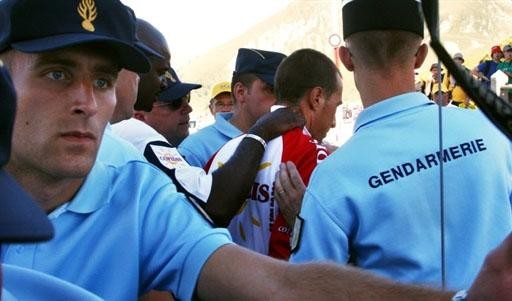WADA advances cooperation with Interpol, Athlete Passport development
The World Anti-Doping Agency (WADA) made significant advances in strengthening the global fight...

The World Anti-Doping Agency (WADA) made significant advances in strengthening the global fight against doping in sport during the Agency's Executive Committee and Foundation Board meetings held last weekend in Montreal, Canada.
WADA announced that it had approved a Memorandum of Understanding formalising its cooperation with Interpol, the world's largest police organisation. This Memorandum of Understanding provides a framework for cooperation between the two organisations in tackling doping, in particular in the areas of evidence gathering and information sharing.
Representatives of the French government officially offered an officer to be based at Interpol Headquarters in Lyon, France. That officer would serve as the liaison between WADA and its stakeholders, and the various Interpol bureaus around the world.
WADA's President John Fahey was thankful for the help of the French government. "As demonstrated by recent high profile doping cases and investigations, government action and the sharing of information between law enforcement agencies and anti-doping organisations can be crucial in exposing anti-doping rule violations that would not have been detected through testing. Law enforcement and government agencies possess investigative powers to attack source and supply of illegal substances which sport does not have."
Athlete Passport
Advances were also made in the development of the Athlete Passport concept. The fundamental principle of the Athlete Passport is based on the monitoring of an athlete's biological parameters to detect abnormal variations that indirectly reveal the effects of doping, as opposed to the traditional direct detection of doping. The international cycling union adopted a passport programme at the beginning of this year.
Currently, various anti-doping organisations employ disparate approaches to biological monitoring. WADA is cooperating with international experts to harmonise practices, such as protocols for collection, transportation, storage and analysis of samples as well as results management.
Get The Leadout Newsletter
The latest race content, interviews, features, reviews and expert buying guides, direct to your inbox!
WADA is developing an "Athlete Passport Operating Manual." This manual will provide an overview of the scientific principles behind the blood testing. A number of technical documents are being drafted to supplement the manual and will outline, in detail, requirements aimed at ensuring legal and scientific consistency. It is expected that this work will be completed in early 2009, and that the development of an endocrine test for the Athlete Passport will follow.
WADA's Director General, David Howman, said his organisation is constantly looking at innovative strategies to fight doping in sport. "We initiated this project in 2002 and we have since devoted significant attention to the programme. We are encouraged by the development of the Athlete Passport and we are looking forward to its implementation by anti-doping organisations on a broader scale in the coming months and years."